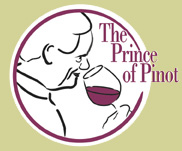Binge Drinking and Health Consequences
Binge drinking is an episode of excessive drinking with has a number of definitions. These include the
consumption of five or more drinks in a row by men on a single occasion or four or more drinks in a row by
women, or a blood alcohol concentration (BAC) over 0.08 (National Institute on Alcohol Abuse and Alcoholism).
Problematic drinking is widespread among college students and may lead to alcohol dependence in later
adulthood, particularly in females.
The 2011 Monitoring the Future Study found that 81% of college students have tried alcohol at least once in
their lifetime, 36% reported binge drinking, and 14% reported that they have consumed 10 more drinks in a row
at least once in the past two weeks.
The 107th Annual Meeting of the American Sociological Association in 2012 reported a study of students from
higher status groups (wealthy, male, white, fraternity or sorority members) were happier with their college social
experience than their peers from lower status groups (less wealthy, female, non white, lesbian, gay and no
Greek affiliation). The higher status groups were more likely to binge drink. Members of the lower status
groups who were binge drinkers were happier (more social satisfaction) than those who rarely or never binged.
In summary, binge drinking and social satisfaction were strongly connected.
Vital Signs: Binge Drinking Among Women and High School Girls - United States, 2011 MMWR Morb
Mortal Wkly Rep 11 (62) January 2013. A report from the Centers for Disease Control and Prevention (CDC)
in early 2013 found binge drinking to be an under-recognized problem for girls and women (CDC’s Vital Signs
report at www.cdc.gov/vitalsigns/bingedrinkingfemale/index.html). 1 in 8 women and 1 in 5 high school girls
binge drink (defined in this report as consuming four or more drinks on an occasion). Binge drinking was most
common among women ages 18 to 34 and high school age girls. It was most frequent among women in
households with annual incomes of $75,000 or higher. The concern about binge drinking in younger women is
that it puts them at a higher risk for breast cancer, sexually transmitted disease and unintended pregnancy.
Binge drinking during pregnancy can lead to fetal alcohol syndrome and spontaneous abortion. Binge drinking
leads to about 23,000 deaths in girls and women yearly. See also Alcohol Use and Binge Drinking Among
Women of Childbearing Age - United States, 2006-2010 MMWR Morb Mortal Wkly Rep 20 (61) July 2012
The prevalence of binge drinking in women ages 18 to 44 was 15% among non-pregnant women and 1.4%
among pregnant women.
Binge Drinking, Drinking Frequency, and Risk of Ischemic Heart Disease: A Population-based Cohort
Study Scandinavian J of Public Health 39 December 2012. A population analysis from Denmark found that
light-to-moderate drinkers who reported an episode of binge drinking did not show differences in the risk of
ischemic heart disease or total mortality than did other moderate drinkers who did not report binge drinking.
The results are different from many other epidemiological studies that show increased risk of heart disease
associated with binge drinking. The definition of binge drinking in this study was more than five drinks per day
and may account for a different result. Even so, binge drinking is not healthy.
Divergent Associations of Drinking Frequency and Binge Consumption of Alcohol with Mortality Within
the Same Cohort J Epidemiol Community Health December 12, 2012 (ahead of print) This study assessed
the associations of alcohol use with mortality in a population with a hybrid of drinking patterns, aged 20-62
years. A higher all-cause mortality in both sexes and a higher cardiovascular disease mortality in men was
found with increasing frequency of binge drinking, compared with non-bingers. In both sexes, low-frequent use
of any alcohol was associated with lower all-cause and cardiovascular mortality, compared with abstention.
The authors point out that questions on drinking frequency and a specific question on binge drinking capture
different effects of alcohol use on all-cause and cardiovascular mortality.
Heavy Binge Drinking May Increase Risk of Stroke in Nonalcoholic Hypertensives Carrying Variant
ALDH2*2 Gene Allele Acta Neurol Taiwan 21 (1) March 2012 Two case reports suggest that heavy binge
drinking increases the risk of acute stroke in hypertensives with the variant ALDH2*2 gene allele, possibly due
to increased cardiovascular stress due to prolonged elevation of blood ethanol and acetaldehyde levels. The
variant allele ALDH2*2 is found almost exclusively in the East Asian people and interferes the metabolism of
alcohol by impairing the conversion of acetaldehyde to acetate.
Refer also to studies on binge drinking in pregnancy in the Pregnancy section of this issue.


